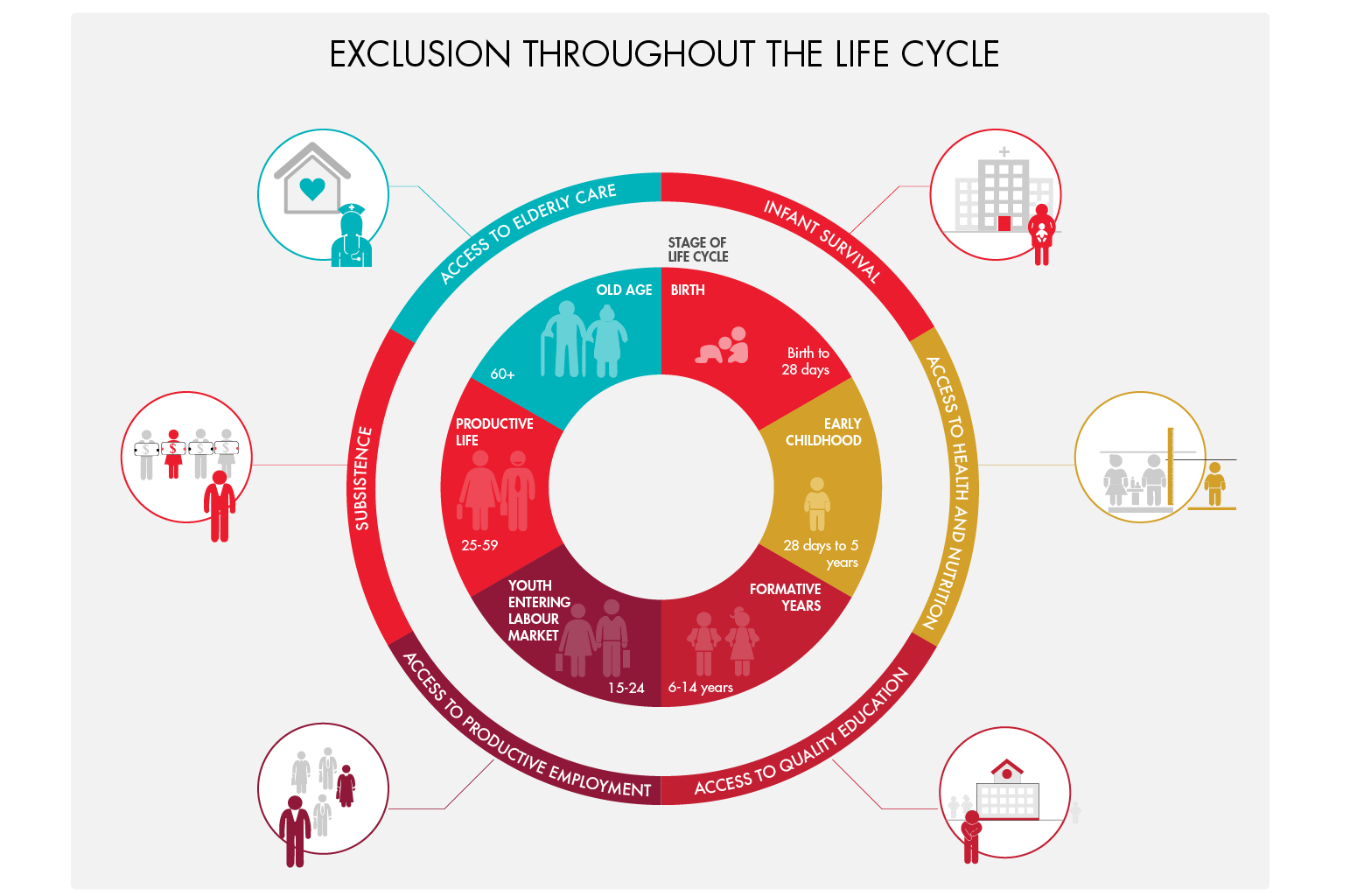Home
The African Social Development Index (ASDI) is a tool designed to measure human exclusion throughout the individual life cycle.

The paradox of growth in Africa
Between 2000 and 2014, Africa’s economic growth has been substantive. African countries grew by an average of 5%, and in some cases, up to 7 to 11% per year. This growth was largely driven by exports of natural resources, improved macroeconomic and political stability, a growing middle class, and increased domestic consumption.
This positive economic growth, however, has not translated into meaningful social outcomes. The continent is still fraught with inequalities and exclusion on the basis of income, ethnicity, gender, age and location. Progress in social indicators has been slow. Despite significant improvements in education and maternal health, children in Africa are still more likely to be undernourished and deprived than children in any other part of the world. Poverty has declined in the past decade but at a slower pace than in the early 2000s. These conditions often lead to a lack of social and economic opportunities in life and exclusion from full participation in society.
Further, limited social protection in many countries has worsened exclusion patterns. The most marginalized groups are more vulnerable to external shocks that can reduce their productive capacities and push them back or further into poverty.
Achieving a more equitable and inclusive development has become an urgent priority for Africa. To response to this challenge, the UN Economic Commission for Africa (ECA) has been at the forefront of promoting Africa First economic transformation agenda that builds on the continent’s comparative advantage and shifts toward increased productivity. The focus will be on adding value through commodity-based industrialization and deeper regional integration. The social transformation, on the other hand, must ensure that economic development translates into meaningful job creation, sustainable social progress and improved well-being of Africa’s populations.
To achieve this, in 2013 ECA proposed a new paradigm for inclusive development and a tool, the African Social Development Index (ASDI), that aims at addressing human exclusion throughout the individuals’ life cycle.
